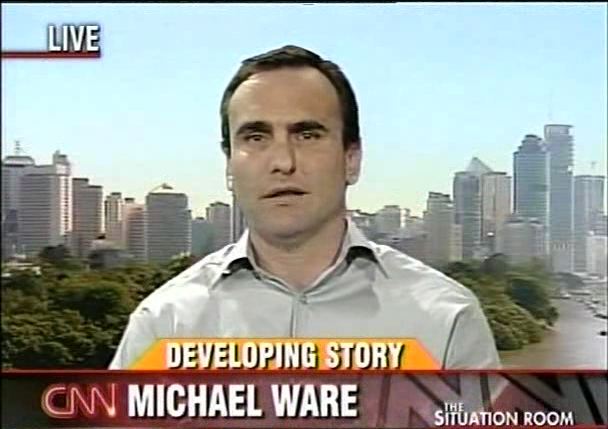TSR: More on Zarqawi's death

Click photo to play
Length: 4:40
WOLF BLITZER: Let's get some more now on the death of Abu Musab al-Zarqawi. For that, we're joined by CNN correspondent Michael Ware. He's the former Baghdad bureau chief for "Time" magazine. He was once almost killed by Abu Musab al-Zarqawi's forces. Michael is joining us from Brisbane in Australia. Michael, what does this mean that Abu Musab al-Zarqawi is now dead?
MICHAEL WARE, CNN CORRESPONDENT: Well, Wolf, this just spins off in so many directions, it's difficult to know where to begin. Let's look firstly at his organization. What we're now going to see is a real test for them. I've watched as his originally foreign-dominated organization has been Iraqified. I mean, we have seen Iraqis who have been drawn to his flame, to his particular brand of Islam and particular brand of terrorism. And they'd join the ranks. We have now seen them rise up. And as foreign leaders have been killed, more and more we have seen Iraqis replace them. Now, this has had an impact on his organization. It has changed their tone a little bit, and we saw it reconfigure itself back in January last year, at least for public consumption. The question now is, do these Iraq leaders step up to the plate? Where will they take his organization? Will they continue on the hardcore path Zarqawi took them down, or will they veer more towards the rest of the insurgency, their Iraqi kin? The other thing is, we're going to see the rest of the insurgency -- remember, the bulk of the insurgency, the vast majority of these attacks that are killing American boys in Iraq are not carried out by Zarqawi's people. His attacks capture the headlines, but most of the roadside bombs, the ambushes, the mortars on U.S. bases, come from the Iraqi nationalists, the former military types, the Ba'ath. These people will now try to seize the momentum within the insurgency. And oddly, though the Ba'ath may be the immediate beneficiaries of this, that could also help the U.S. mission.
BLITZER: There have been some who have suggested all along that Abu Musab al-Zarqawi was not actually the big fish that a lot of people thought he was, that he was being built up, if you will, by some in the U.S. and Iraqi governments, because they needed a foreign target to make it look like the insurgency was simply a bunch of foreigners, not Iraqis. Do you think that line of thought has any credence?
WARE: Well, look, I'm sure that there has been a propaganda value for the administration in Zarqawi. It's always good to put a face to the bogeyman. Nonetheless, Zarqawi was never the leader of the insurgency. And for people to think that is clearly wrong. The insurgency is made up of so many different parts, fighting for so many different reasons, and their alliances are loose and fluid and freewheeling. Yet within his organization, he very much controlled it. Even when in January for publicity purposes he created a council of consensus, it was still his hand that was behind al-Qaeda in Iraq. Now, the other important thing is whilst he controlled the grip in his organization, his influence spread far beyond that. He really helped redefine parts of the insurgency, and he very much defined the terrorist war being fought in Iraq, which is different to the insurgent war and the civil war, which he also played a big hand in.
BLITZER: And very briefly, because we only have a little time left, tell our viewers how close he got to actually killing you?
WARE: Well, back in 2004, his men pulled me -- intercepted my car in Baghdad, pulled me from the vehicle with live grenades, the pins pulled, weapons to my head. They then put me under one of Zarqawi's banners, the same type of banner that we saw behind poor Nicholas Berg during his execution, and they were then preparing to shoot me, filming it with my own video camera. Strangely, I was saved by local homegrown Iraqi insurgents, who didn't agree with this as a tactic. And that illustrates the broader point about the conflict within the insurgency.
BLITZER: Michael Ware is our newest addition to CNN. Thank God you made it through that ordeal. We welcome you to CNN. Michael Ware is going to be doing an excellent job for us as he did for our sister publication, "Time" magazine.
